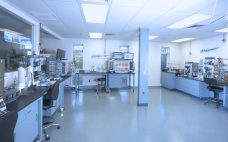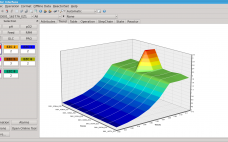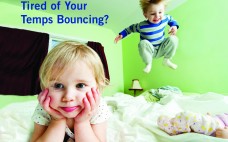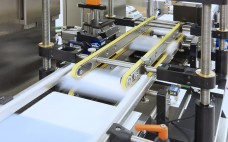This webcast features: Dr. Marc Bisschops, Principal Scientist, and Dr. Mark Schofield, Principal Engineer, R&D, Pall Life Sciences The next evolution in the biopharmaceutical industry is the widespread adoption of integrated continuous bioprocessing for biologics manufacturing. The key to its success, however, is the availability of novel upstream and downstream technologies that will not only reduce facility footprint, capital expenses, and product cost of goods, but will also increase process productivity, flexibility, and further facilitate the utilization of single-use and/or…
Manufacturing
Acceleration of Bioprocess Development Using DoE and Physiological Control
This webcast features: Professor Christoph Herwig, Department of Biochemical Engineering, Vienna University of Technology Bioprocess Development for biotechnological high value added products is still a time consuming task. The reason for this is the high complexity of interdependence between process variables, product quality attributes and process parameters. The demonstration of understanding these interdependencies is however key to achieve regulatory acceptance according to Quality by Design (QbD) principles. Hence, it is important to set up senseful experiments and to gather as…
Eliminating the Ups and Downs of Staffing Challenges
This webcast features: Beth DiPaolo, M.A., SPHR, President, Eurofins Lancaster Laboratories Professional Scientific ServicesSM Many pharmaceutical and biopharmaceutical companies are currently experiencing strong development pipelines, but they face challenges associated with balancing the expanded workloads with restrictions on employee headcounts. To combat this, companies often turn to temporary staffing; however, due to the challenges in finding, training, and retaining motivated talent, the temporary staffing model does not meet current demands in these areas. As an expert with 14 years of…
Single-Use Biopharma Product Recycling: An Alternative Process to Unlock the Challenges
This webcast features: Jacqueline Hollands Ignacio, Corporate Responsibility Programs Manager – Customer Initiatives, MilliporeSigma, and Michael Farrell is Corporate Disposal Coordinator, Triumvirate Environmental. As the biopharmaceutical industry increases the adoption of single-use manufacturing products, the issue of recycling becomes a challenge. Disposal and recycling the plastics from these products is a challenging task due to many factors such as limitations within the recycling infrastructure, products containing a mix of materials and plastics, and biopharmaceutical products can contain biologically hazardous materials…
An Extractable and Leachable Program for Assessing Single-Use Components and Systems
This webcast features: Chris Shields, Director of Global Product Validation Services at Saint-Gobain Life Sciences. Extractable testing is traditionally performed by single-use suppliers, and while not required by industry regulations, it is the drug manufacturer’s expectation that this information form part of a product’s data package. Extractable and leachable testing is designed to determine the chemical compounds that may migrate into the customer’s fluid from the single-use product’s fluid contact layer. Extractable testing utilizes aggressive but relevant test conditions, while…
Development of a Novel Thermoplastic Tubing, FP-FLEX and Single-Use Freezing Bag for Working Cell Banks Enabling Closed-System Processing to Temperatures as Low as -196 °C
This webcast features: Dominic Clarke, Global Product Manager, Charter Medical Working cell banks (WCB’s) are commonly applied to initiate cell culture manufacturing campaigns for production of recombinant or therapeutic proteins. These campaigns typically begin with inoculation of cells previously cryopreserved in cryovials. While cryovials are typically used in the development of WCB’s and initiation of manufacturing campaigns, they are not optimal for the growing demands of commercial production. Cryovials are small and filling/removal is performed through an open screw cap. This…
Secondary Packaging: Creating Value with Product Lifecycle Management
This webcast features: Daniela Guttmann, Product and Service Manager at Vetter, and Susanne Hall, Team Leader of Secondary Packaging at Vetter. Factors such as new regulatory requirements (e.g. serialization) and expenses associated with secondary packaging have created significant interest in Product Lifecycle Management (PLM). When incorporated early in the planning process, PLM can boost a product’s chance for success by helping to meet market requirements, and save costs. Watch the webcast on PLM for Secondary Packaging, and learn how it…
2D DIGE Western Blot for HCP Detection and Coverage Determination: Advantages of Fluorescence over Colorimetric Detection
This webcast features: Jamina Fiedler, Head of 2D Analytics at BioGenes GmbH. Biopharmaceutical products need to be free of contaminating host cell proteins (HCPs) prior to approval and regulatory bodies ask for a clear and manifest proof that HCP assays are fit for purpose. The colorimetric 2D Western Blot method, although widely used for HCP detection and coverage determination, has several limitations. Using examples, webinar participants will learn how the use of fluorescent dyes can help overcome these limitations to…
Dual-Chamber Syringes vs. Vials
Is there a clear choice between dual-chamber syringes and vials in today’s competitive drug development market? That’s the topic of this recorded webcast. During the webcast, the speakers address the following questions: What are the causative factors that have resulted in the rapid increase in prefilled syringes over the last several years? Do dual-chamber syringes offer distinct advantages over vials in drug development? How can dual-chamber technology help differentiate products in a highly competitive environment? What are the main differences…
Clinical Syringe Development: An Innovative Approach to Gain an Early Advantage
Do ever-rising drug development costs, highly competitive markets, and increasing regulatory demands sound familiar? This webcast addresses the benefits of starting syringe work earlier in the development process of injectables. This webcast will: Provide an overview of the many development challenges faced by pharmaceutical and biotechnology companies Discuss the benefits of clinical syringe development including time savings and package attractiveness Offer a case study with a live question and answer session Feature thought leaders Dr. David Brett and Dr. Sabine…










